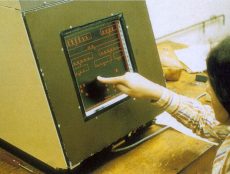
K-12
Op-Ed
How to Better Incorporate Technology in Your Classroom
By eLearning Inside
January 28, 2022
Preparing your students for their careers and the world beyond is likely one of your goals as a teacher. In this modern world, that means giving your students a good understanding of and experience with many different types of technology. If you are looking for new ways to bring technology into your classroom, here are five ways that you can go about it.
Swap Your Whiteboard for a Smartboard
A mainstay in most classrooms is the whiteboard. As a teacher, you likely use the board to show examples of problems, illustrate new concepts, or encourage student participation. A smartboard will allow you to keep doing all these things while also incorporating new features. Smartboards can allow students who use laptops to participate in problem-solving right from their desks (or allow students who are learning virtually to engage with their classmates). The boards could even augment the content that you are already creating, such as turning a simple list of salaries into an illustrated bar graph of the average CFA salary with a single click.
Use eTextbooks Over Printed Ones
As students get older, the textbooks only seem to get bigger. Those in middle and high school may find it hard to get all their books in their backpacks at the end of the day. Not only that, but printed textbooks can fall out of date very quickly and can be very expensive to replace with the newest editions. You can help your students lighten the load by utilizing ebooks instead of printed ones. This allows your students to access their textbooks from school or home and eliminates the possibility that they’ll forget a needed textbook in their locker. It also helps keep your classroom content relevant, as ebooks are far easier to update than their printed counterparts.
Explore Computer Care & Maintenance
More and more school systems are equipping their students with laptops, some as early as 3rd grade. Teaching your students how to use their laptops properly is important. Going above and teaching them how to care for and maintain their laptops will not only keep their equipment working longer at school, it’ll also give them an edge in their future careers.
Start by teaching your students good computer hygiene, such as not eating or drinking anywhere near their laptops. You could also show them how to wipe down their keyboards and screens with soft dry cloths. If you teach older students, you could talk about the importance of checking for system updates and patches and installing them promptly. You could even get into a discussion about how to identify and avoid falling for phishing scams and viruses. Even some adults struggle with these concepts, so teaching them early will give your students an advantage as they grow up and enter the workforce.
Demonstrate Problem-Solving With More Tools
Laptops are an important learning tool, but they’re not the only option that teachers have for bringing technology into the classroom. Scientific tools, such as heat cameras, night vision scopes, radio telemetry, microscopes, and more all help combine technology with STEM learning. Familiarity with these tools will help your students who choose to pursue careers in these fields. It can also help them explore the world around them and get a deeper understanding of their place within it.
Here are some ways that you can use these tools:
- Measure the classroom air temperature each morning and record it on a chart
- Use a heat camera to measure the ambient temperature of electrical things like laptops and lightbulbs
- Use a datahub to test the water quality of drinking fountains
Don’t be afraid to get creative with the tools that you choose to use in your classroom. The goal is for your students to learn how to utilize tools to help them solve problems.
Communicate With Parents and Students Via an Online Portal
Chances are that you already communicate with the parents of your students in a variety of ways, such as emails, report cards, and written notes. An online portal could help you streamline the communication as well as provide a place to post grades, announcements, and reminders. This could allow parents to check on their student’s progress at any time and stay involved with what their student is doing. As a benefit to you, it may help cut down on the number of parent emails you get.
The more technology you can bring into the classroom, the more potential advantages you are giving your students. Helping them become more familiar with many types of technology now will set them up for success in the future.
Featured image: CDC, Unsplash.









No Comments